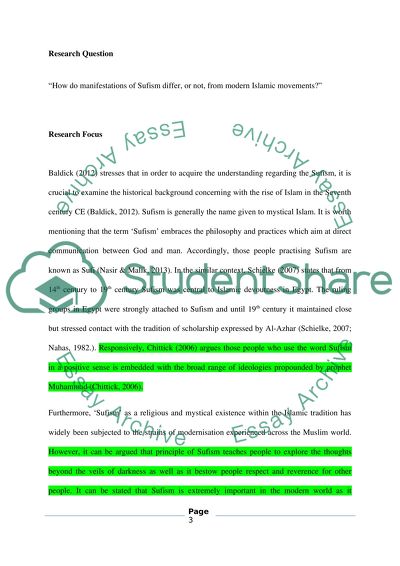Cite this document
(“Sufism: Contemporary challenges facing Sufis in Egypt Dissertation”, n.d.)
Sufism: Contemporary challenges facing Sufis in Egypt Dissertation. Retrieved from https://studentshare.org/religion-and-theology/1490255-sufism-contemporary-challenges-facing-sufis-in
Sufism: Contemporary challenges facing Sufis in Egypt Dissertation. Retrieved from https://studentshare.org/religion-and-theology/1490255-sufism-contemporary-challenges-facing-sufis-in
(Sufism: Contemporary Challenges Facing Sufis in Egypt Dissertation)
Sufism: Contemporary Challenges Facing Sufis in Egypt Dissertation. https://studentshare.org/religion-and-theology/1490255-sufism-contemporary-challenges-facing-sufis-in.
Sufism: Contemporary Challenges Facing Sufis in Egypt Dissertation. https://studentshare.org/religion-and-theology/1490255-sufism-contemporary-challenges-facing-sufis-in.
“Sufism: Contemporary Challenges Facing Sufis in Egypt Dissertation”, n.d. https://studentshare.org/religion-and-theology/1490255-sufism-contemporary-challenges-facing-sufis-in.


